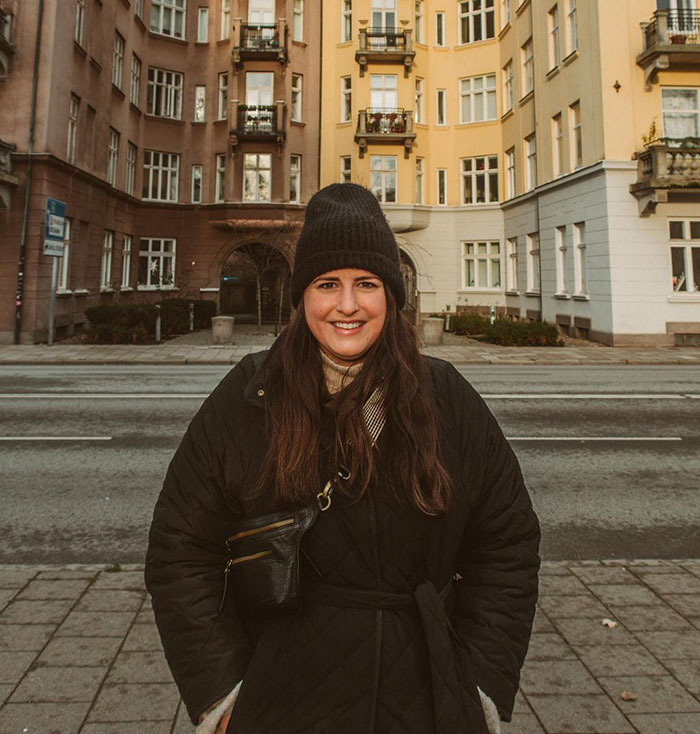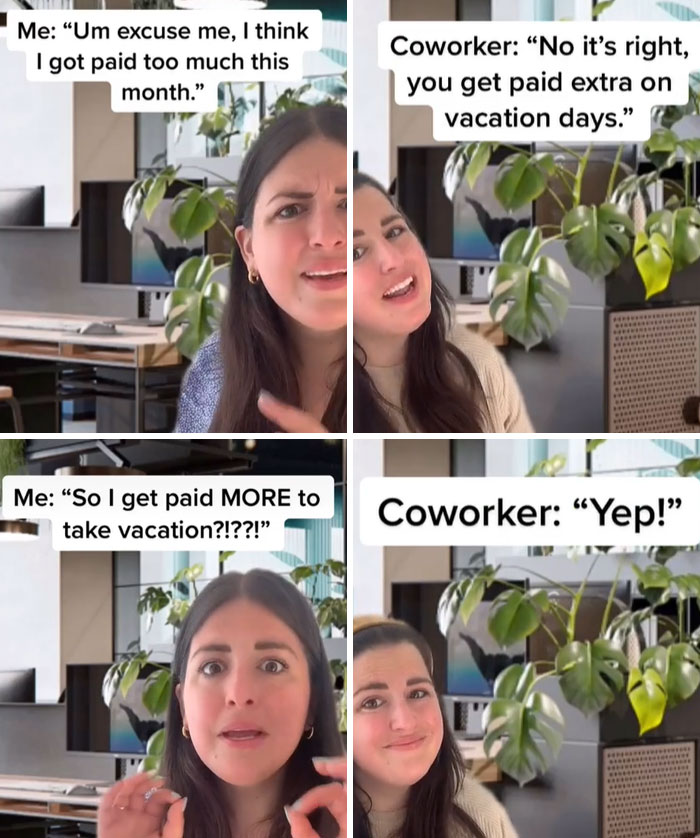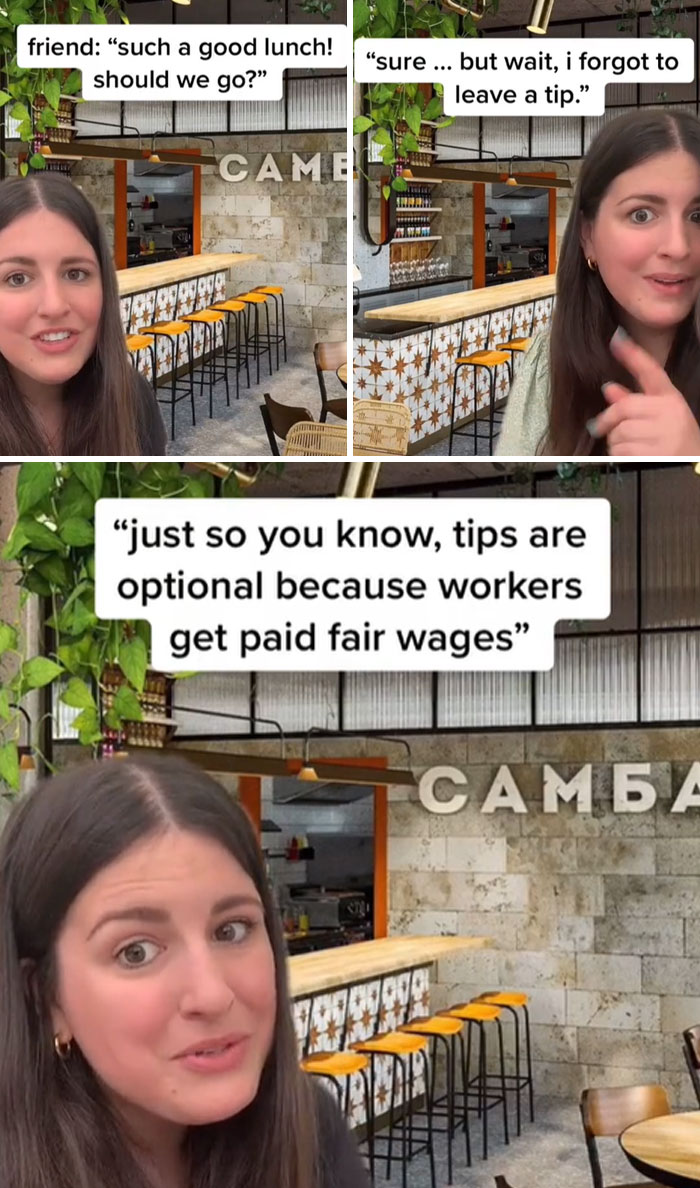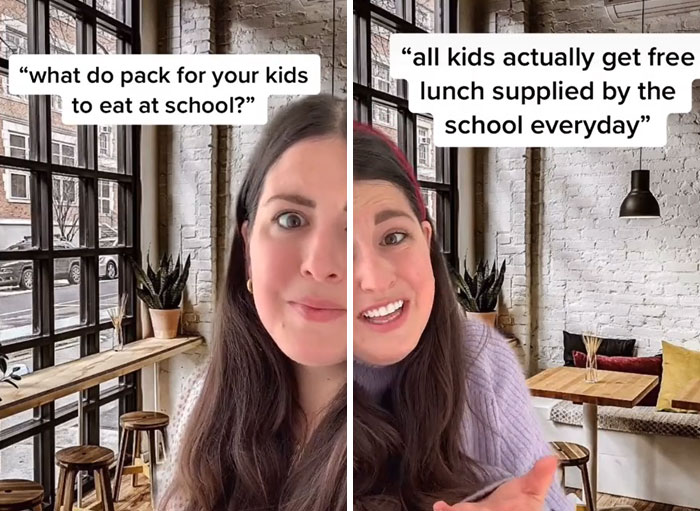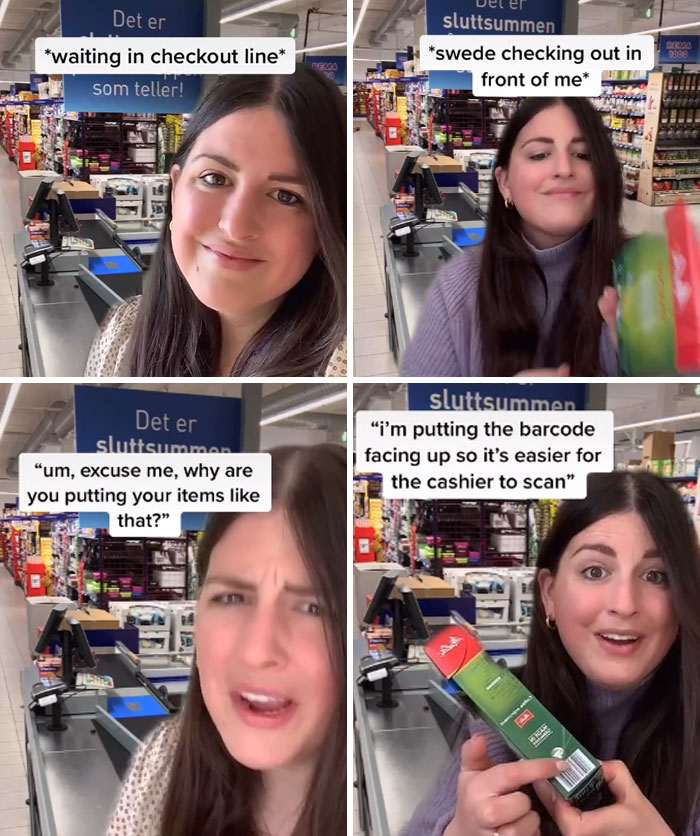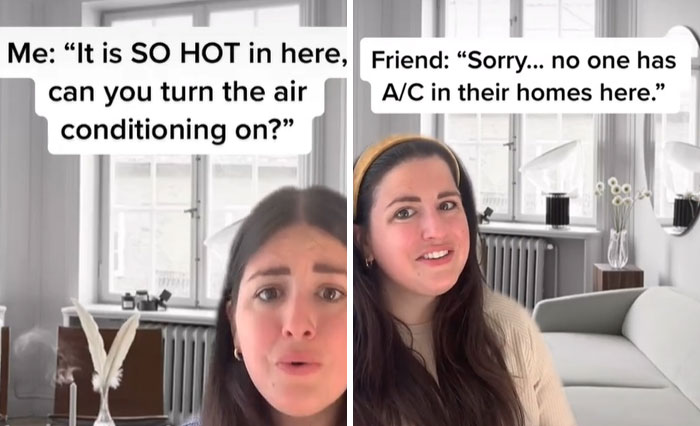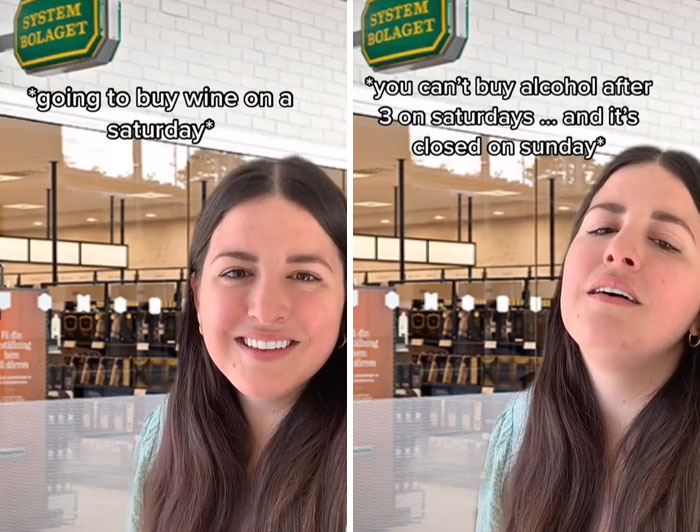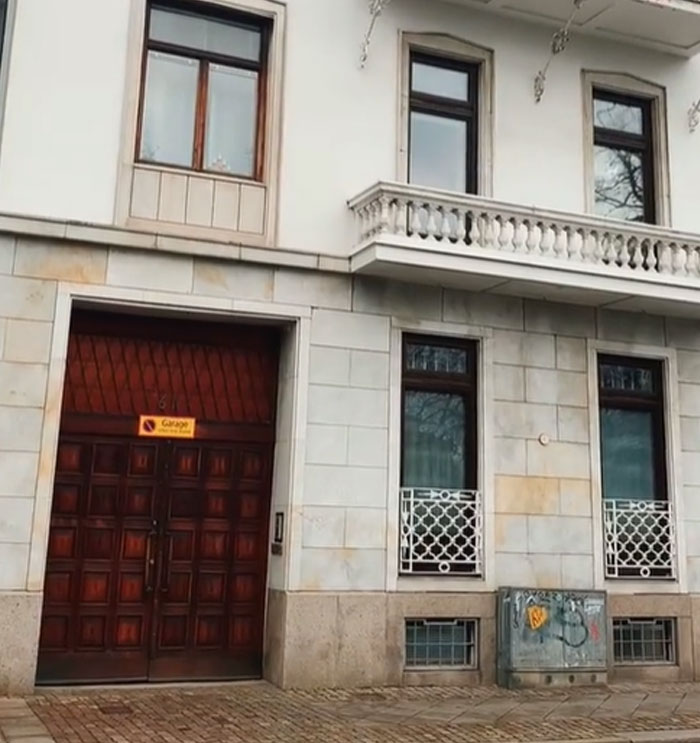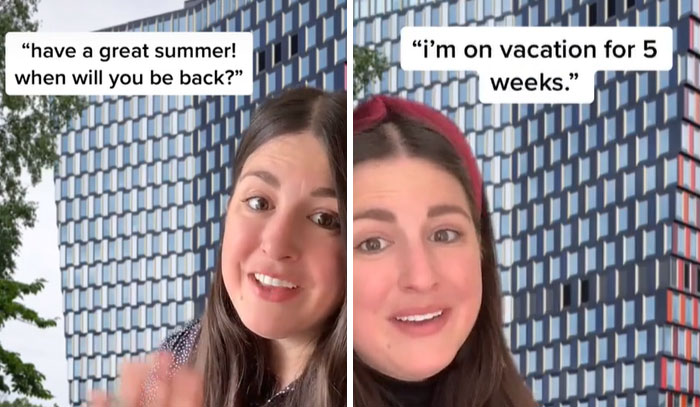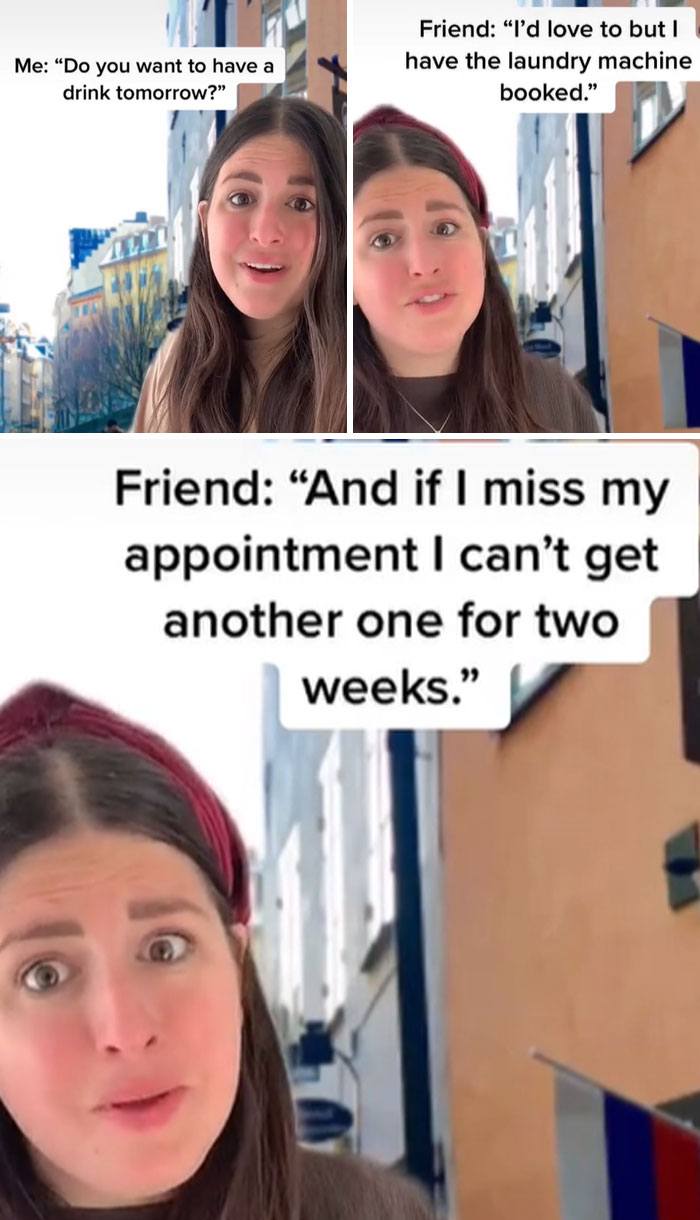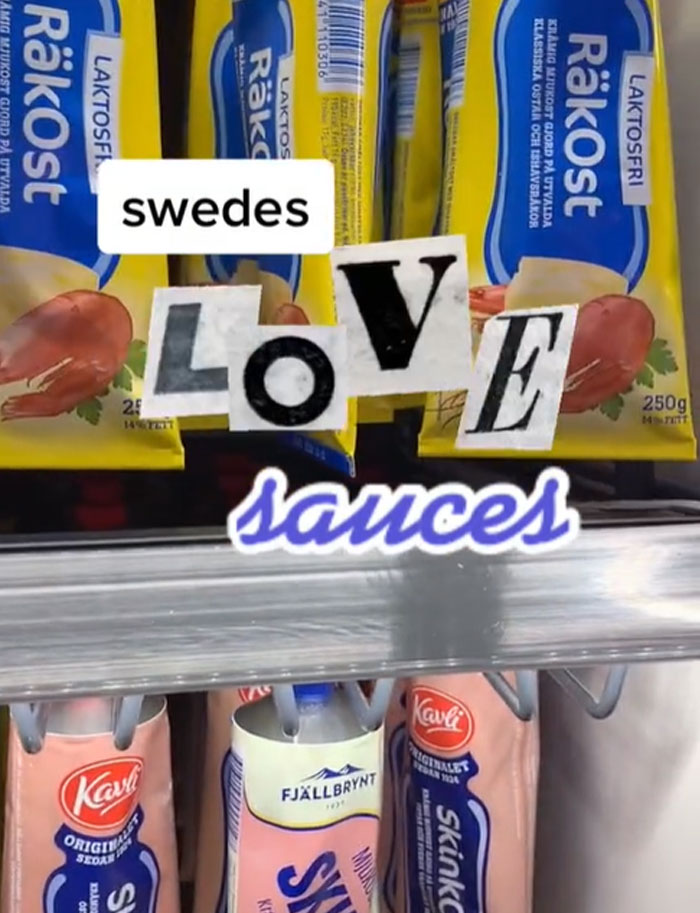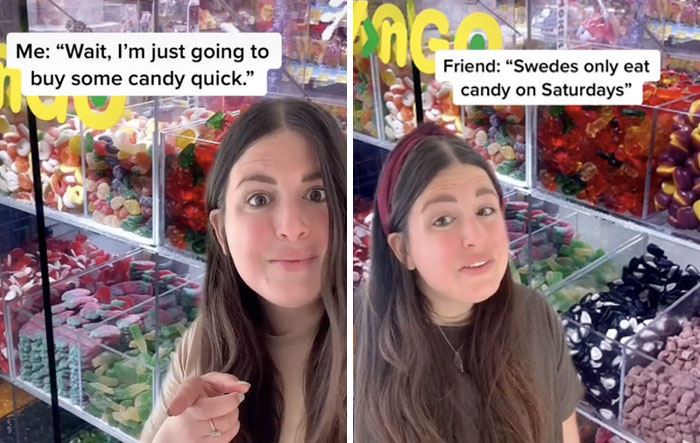When you hear Sweden, you most likely think of a Nordic land with blond people, weird festivities like Midsummer, and edgy Stockholm street style. Not only that, every year, Swedes are reported to be among the happiest people with enviable work-life balance and renowned social equality.
So no wonder foreigners who come to live there have quite a culture shock, with so many quirks and nuances of Swedish culture. This is what happened to the 30-year-old Canadian Madeline Robson, who moved to Malmö, Sweden two years ago and ended up falling in love with the city.
Now Madeline shares her experiences from everyday life on her TikTok channel where she says she’s “romanticizing my Scandi life.” With 143.9K followers, she has gained quite a solid following, so let’s see some of the most interesting cultural differences she came across in the far Nordic land!
More info: Madelineraeaway.com | TikTok | Instagram | Pinterest
This post may include affiliate links.
In the Netherlands vacation money is paid once per year, usually in May or June so you have some extra spending money on your vacation. The amount you get is dependent on your normal salary.
Bored Panda reached out to Madeline, who’s originally from Canada and has been living in Malmö, Sweden for over two years. The writer and content creator now runs an awesome blog, ‘Madeline Rae Away,’ to document her life and travel adventures while living abroad.
Madeline’s Scandi life started when she and her Swedish fiance met while traveling in 2017. “After a year and a half of long distance, I quit my corporate job without much of a plan, secured a short-term visa and moved here to be with him,” she recounted.“
In many ways, Canada is similar to Sweden,” the woman said of her first impression, which changed once she got a corporate job there. “I started to really notice the nuances and quirks of the culture that I found really fun and interesting. I am a marketer by profession and over this past winter, while we were locked down without much to do, I started to post some of my observations on TikTok. And people really seemed to enjoy the content!”
This should be implemented in all countries if we want both parents equally involved in caring for the children.
Madeline was honest to say that she’s still adapting to the Scandi lifestyle: “it's hard to feel totally integrated until you speak the language fluently.”
“But otherwise, it took me about a year to really get into the rhythm of daily life here. It was mostly the little things that took some adapting, like shopping for groceries and finding my favorite products in another language, or getting used to biking everywhere instead of driving.”
Meanwhile, from a work perspective, she said she was used to a much more intense work culture. “It took a while to adapt to the balanced, generally slower pace of life here. In many ways, my life is much simpler here and now I really love it!”
"It is common to see people walking, jogging, pushing strollers, walking dogs, or even meeting friends for fika in the cemeteries. Seeing the way the cemeteries have been adapted to urban life was very new for me"
Madeline assured us that there were many cultural shocks. “The work-life balance is amazing. But I was really shocked by all the parental benefits Swedes have. Childcare is incredibly cheap, parents enjoy 480 days of paid parental leave (that is shared between both parents), you get paid to stay home from work when your kids are sick, and parents are often encouraged to take 4-6 weeks off every summer to spend time with their families.”
“On a more superficial note, I was also a bit surprised to find out that not all Swedes are tall, blond-haired and blue-eyed. And are actually amazing at speaking English, and don't sound anything like the Swedish chef,” she added.
That's nice, but it is surprising how quickly you learn where the barcodes are when you work on a checkout - I only did in my uni holidays but I soon caught on - it also only helps if the person doing the bagging is also as quick - I'd grab a bag and help if someone was stuggling.
I've heard this often about Scandinavian countries. And while I find it strange, I love the fact that they don't have to worry.
Madeline hasn’t been able to visit her family and friends in almost two years, so she said that above all else, she misses the people. “I also generally miss the friendliness of Canadians. And then it's just little things like good maple syrup, all-dressed chips, Tim Hortons, and Canada's hockey culture,” she said.
"This means that when you have a baby you submit your name to the government and they can approve or deny it. Here's some of the banned names:
Ikea, Metallica, Elvis, Superman, Varanda, Q,, Michael Jackson, Token, Ford, Brfxxcxxmnpccclllmmnprxvclmnckssqlkb11116 which apparently = Albin"
Have a Swedish stepsister who took circus skills and acrobatics for her last few years in high school. She was 19 when she graduated and has been all over the world with Clowns Without Borders and currently she and her partner own a large, old sailboat where they do performances and workshops as part of Malmö City's summer activities program. There's a swing and highwire attached to the rigging masts. She is also one of the founders of Karavan Circus who have a training building and show space in an old warehouse.
"I was blown away by how amazing your English is. I was told swedes are the second-best English speakers in the world but I wasn't ready for just how fluent most people are. I know you were exposed to English growing up and taught it in school, but I was taught French most of my life and I'm not fluent in French. Learning a second language is hard so you should be proud of yourselves"
"Did you know? Swedes are the second highest coffee consumers in the world. I always thought that we drank a lot of coffee in Canada but I was never a big coffee drinker.. until I moved here. It feels like Swedes whole days revolve around drinking (very strong) coffee. The coffee in Canada is so weak by comparison"
Casual dress to everything... funerals, church, parties, work, school... no uniforms necessary.
Swedes are big on personal space and not bothering others! Never get too close to someone at the bus stop in Sweden, they get panicky!
"This one is a language nuance and I am so CURIOUS if you have noticed this or do this. When I started working my corporate job I would ask yes/no questions and not understand the answer. They would respond to a basic question with a *BREATH IN*. Just a simple breath. I was so confused... like does that mean YES or NO? Over time I realized that it means YES or is a way of agreeing to the question and I know in the north of Sweden this is done much more obviously"
"I was shocked by how different Swedish dialects are depending where you're from and found out I was apparently learning the most difficult dialect. In Canada accents don't vary THAT much (unless you're from the east coast). I always thought my Swedish accent was pretty neutral but you guys told me otherwise. In a video I said: "JAG KOMMER FRÅN KANADA" and everyone said I spoke skånska. This whole accent thing was such a shock for me"
I live in Belgium and am learning Dutch. According to my colleagues, apparently I'm an American speaking Dutch with a German accent. I've been told that there are a lot of local dialects and that scares me a bit as a new learner.
"Sauces are often sold in tubes. You have things like shrimp, bacon or saffron-flavoured tube cheese. You can also find common condiments like mayo in tubes too"
How is this possible, a Country vs. Country post that DOESN'T have the US?
Scandinavian countries are great. I 'd like we could copy more of them in my country. It's a much better model than USA.
Minimum wage in Ontario is $14.25/hr. BC is $15.20/hr. If you serve food/liquor, your wage is lower at $12.45/hour plus tips. The average server pay is $13.32. In Sweden, minimum wage is negotiated. If you're working at fast food, you're making around 100-105 Krona ($14.75CAD/hr), a server makes an average of 117KR ($16.90 CAD). In Stockholm they make an average of 130Kr($18-19 CAD). In Toronto or Vancouver which are comparative servers can earn more and all of these servers can earn tips on top of these hourly pay. If you get even one $10 tip in a dinner shift, there you are. Canadians (and I am one) are just whiny and entitled, plus they are too lazy to even convert the KR to CAD to compare before writing an article like this. Worse is that Bored Panda didn't even check it.
How is this possible, a Country vs. Country post that DOESN'T have the US?
Scandinavian countries are great. I 'd like we could copy more of them in my country. It's a much better model than USA.
Minimum wage in Ontario is $14.25/hr. BC is $15.20/hr. If you serve food/liquor, your wage is lower at $12.45/hour plus tips. The average server pay is $13.32. In Sweden, minimum wage is negotiated. If you're working at fast food, you're making around 100-105 Krona ($14.75CAD/hr), a server makes an average of 117KR ($16.90 CAD). In Stockholm they make an average of 130Kr($18-19 CAD). In Toronto or Vancouver which are comparative servers can earn more and all of these servers can earn tips on top of these hourly pay. If you get even one $10 tip in a dinner shift, there you are. Canadians (and I am one) are just whiny and entitled, plus they are too lazy to even convert the KR to CAD to compare before writing an article like this. Worse is that Bored Panda didn't even check it.

 Dark Mode
Dark Mode 

 No fees, cancel anytime
No fees, cancel anytime 



